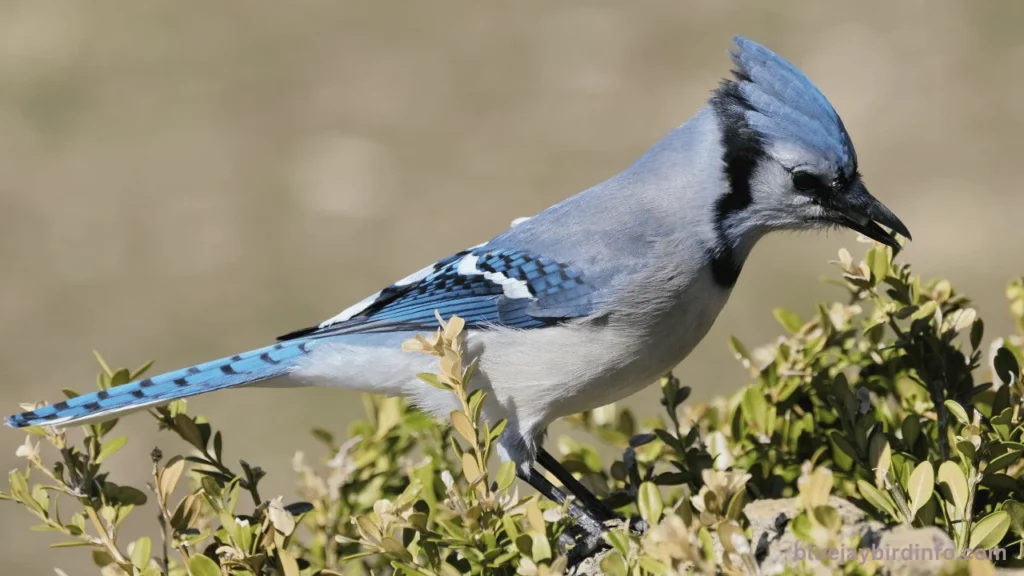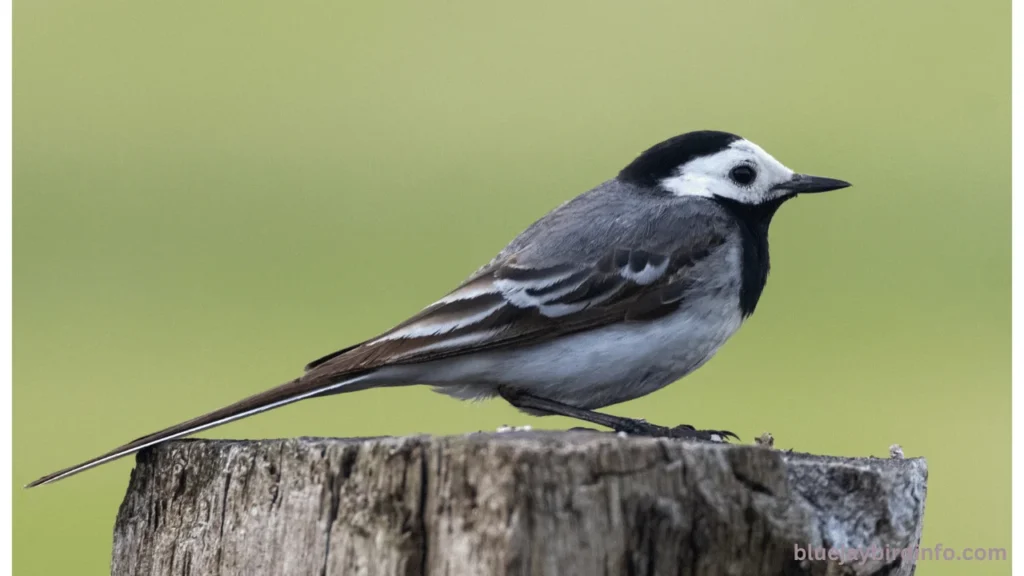The idea that blue jays might raid nests and steal bird eggs is both fascinating and controversial. Known for their bold personalities and striking blue feathers, blue jays have a reputation as aggressive defenders of their territory.
However, when it comes to their diet, the story becomes more complex. While many backyard birdwatchers have observed blue jays exhibiting potentially predatory behavior, there is still debate about how common egg-stealing actually is among these birds.
This question is particularly relevant because it touches on larger ecological dynamics. Understanding whether blue jays regularly target the nests of other birds could shed light on how they impact local bird populations.
If you’re a bird enthusiast, wildlife observer, or just someone interested in the intricate relationships between species, knowing more about blue jays’ eating habits adds depth to your appreciation of nature.
In this article, we’ll explore the evidence for and against the claim that blue jays eat bird eggs, looking at their omnivorous diet, predatory tendencies, and what this means for the broader ecological balance. The goal is to provide a nuanced perspective on a bird species often misunderstood.
Contents
- 1 Evidence for Egg-Stealing Behavior
- 2 Factors Influencing Egg-Stealing Behavior
- 3 The Impact of Egg-Stealing on Other Birds
- 4 Alternative Explanations for Egg Disappearance
- 5 Conservation and Management Strategies
- 6 Conclusion
- 7 FAQ’s
- 7.1 Do blue jays eat bird eggs?
- 7.2 What evidence is there for blue jays stealing eggs?
- 7.3 What factors influence blue jays’ egg-stealing behavior?
- 7.4 How does egg-stealing impact other bird populations?
- 7.5 Are there other culprits responsible for missing eggs?
- 7.6 What can be done to manage egg-stealing behavior?
Evidence for Egg-Stealing Behavior
There is considerable anecdotal evidence suggesting that blue jays engage in egg-stealing behavior. Many backyard birdwatchers have shared stories of blue jays raiding nests and snatching eggs, especially during the breeding season of smaller bird species.
These reports, though widespread, are often based on isolated observations and lack the scientific rigor needed to confirm the extent of the behavior.
However, direct observations of blue jays in the act of stealing eggs do exist. Some studies have documented blue jays removing eggs from nests, particularly in areas where food sources are limited. These sightings provide concrete examples of their opportunistic tendencies, though the frequency and impact of such behavior remain uncertain.
In addition to these reports, there is also indirect evidence that supports the claim of blue jay egg-stealing. The sudden disappearance of eggs from nests in regions where blue jays are common has raised suspicion.
While it’s possible that other predators are responsible, the presence of blue jays in these areas adds to the argument that they may be involved in nest predation.
Factors Influencing Egg-Stealing Behavior
Several factors influence egg-stealing behavior in blue jays, with food availability playing a major role. When natural food sources like seeds, nuts, and insects become scarce, blue jays may turn to alternative food options, including bird eggs.
This opportunistic feeding behavior becomes more likely during lean seasons, pushing blue jays to raid nests for sustenance.
Competition for nesting sites also contributes to this behavior. In crowded environments where space is limited, blue jays may become more aggressive, not just defending their own territory but also interfering with the nesting success of other birds.
This competition can lead to destructive actions, including egg-stealing, as a way to reduce rivals and protect their own breeding success.
Additionally, predation pressure may influence blue jay behavior. In areas with high numbers of predators, blue jays may become more defensive and territorial, sometimes attacking other birds’ nests to preemptively eliminate potential threats or even to secure safer nesting locations.
These pressures can intensify the likelihood of blue jays stealing eggs as a survival strategy.
The Impact of Egg-Stealing on Other Birds
The impact of egg-stealing by blue jays can be significant, particularly concerning the population decline of other bird species. When blue jays consistently raid nests, it can reduce the number of hatchlings in local populations, potentially leading to a decrease in numbers for vulnerable species.

This effect can be especially pronounced for birds that already face other pressures, such as habitat loss or environmental changes.
In response to the threat of egg-stealing, many birds have developed nest defense strategies. These strategies can include heightened vigilance, aggressive behaviors toward intruders, and even relocating their nests to more secure areas.
By adapting their behaviors, these birds strive to protect their young from blue jays and other nest predators, but such changes can also be stressful and resource-intensive.
From a conservation perspective, understanding the implications of egg-stealing is crucial. Efforts to protect habitats where these interactions occur are essential to support the populations of both blue jays and other bird species.
Additionally, population management strategies may be necessary to ensure a balanced ecosystem, recognizing the role of blue jays while also safeguarding vulnerable bird populations that are threatened by their predatory behaviors.
Alternative Explanations for Egg Disappearance
When considering the issue of egg disappearance, it’s important to explore alternative explanations beyond the actions of blue jays. One potential factor is the involvement of other bird species or predators that may also raid nests.
Species such as raccoons, snakes, or even other birds like crows could be responsible for the loss of eggs, complicating the narrative surrounding blue jays and their behavior.
Another possible explanation for egg disappearance is nest abandonment by the parent birds. Sometimes, environmental factors, such as severe weather or disturbances, can lead to parents abandoning their nests, resulting in the eggs being left behind and ultimately disappearing.
This scenario can be misinterpreted as predation when, in reality, the eggs were never stolen.
Additionally, incidental damage during territorial disputes or other interactions among birds can contribute to the loss of eggs. In aggressive encounters, adult birds might inadvertently damage nests or eggs, leading to a mistaken belief that they have been stolen. Recognizing these alternative explanations is crucial for understanding the broader context of egg disappearance and the complexities of avian behavior.
Conservation and Management Strategies
To effectively address the challenges posed by egg-stealing and its impact on bird populations, several conservation and management strategies can be implemented. First and foremost, habitat protection is crucial. By safeguarding and restoring natural habitats, we can support diverse bird populations, ensuring that they have adequate resources to thrive.
Healthy ecosystems reduce competition for nesting sites and food, thereby minimizing potential conflicts between species, including blue jays.
Another effective strategy is the implementation of nest monitoring programs. These initiatives can help track egg disappearance rates and provide valuable data on the circumstances surrounding these losses.
By closely observing nests, conservationists can identify patterns and potential culprits, allowing for more informed management decisions and targeted interventions.
Lastly, predator control measures can be examined for their effectiveness in reducing egg-stealing incidents. While managing predator populations can be controversial, carefully executed strategies may help decrease the incidence of predation by blue jays or other birds.
By balancing the needs of various species and their habitats, we can work towards a harmonious ecosystem that supports both blue jays and the myriad of other bird species sharing the same environment.

Conclusion
In summary, the relationship between blue jays and egg-stealing behavior is complex and multifaceted. While there are anecdotal reports and some direct observations of blue jays stealing eggs from other birds’ nests, the evidence is not definitive.
Factors such as food availability, competition for nesting sites, and predation pressure all play significant roles in influencing this behavior. Moreover, it is crucial to consider alternative explanations for egg disappearance, such as the actions of other predators or even the abandonment of nests by parent birds.
Ultimately, understanding the impact of egg-stealing on other bird populations is vital for developing effective conservation and management strategies.
By focusing on habitat protection, nest monitoring, and targeted predator control measures, we can work towards preserving the delicate balance within ecosystems that blue jays and other bird species inhabit.
As we continue to explore the intriguing behaviors of blue jays, it is essential to approach the topic with a nuanced perspective that recognizes their role in the ecosystem while addressing the conservation needs of all species involved.
FAQ’s
Do blue jays eat bird eggs?
Yes, blue jays are known to occasionally steal and eat bird eggs, but this behavior is not their primary food source.
What evidence is there for blue jays stealing eggs?
Evidence includes anecdotal reports and some documented cases of blue jays observed in the act of egg-stealing.
What factors influence blue jays’ egg-stealing behavior?
Factors such as food availability, competition for nesting sites, and predation pressure can all influence blue jay behavior.
How does egg-stealing impact other bird populations?
Egg-stealing can contribute to population declines in affected bird species, prompting them to develop defensive strategies or relocate their nests.
Are there other culprits responsible for missing eggs?
Yes, other bird species, predators, or even nest abandonment by parent birds can account for disappearing eggs.
What can be done to manage egg-stealing behavior?
Effective strategies include habitat protection, nest monitoring programs, and carefully executed predator control measures.








